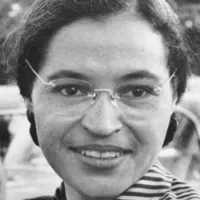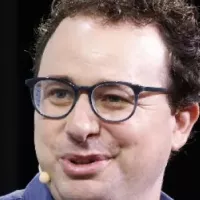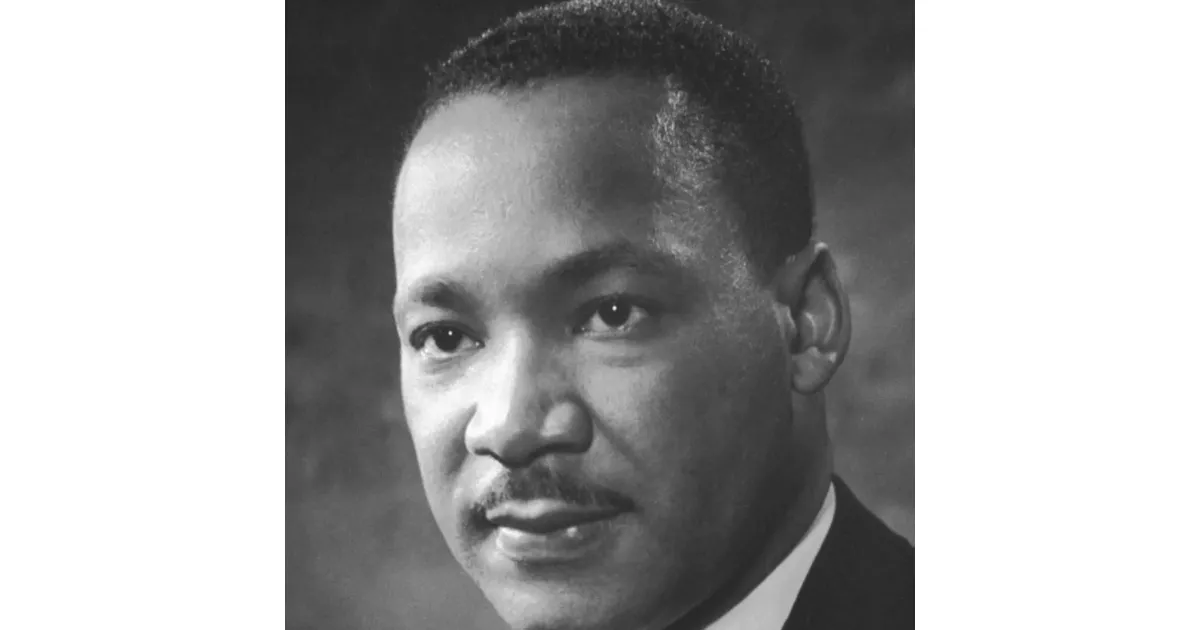An overview of the childhood and early education of Martin Luther King Jr., highlighting the experiences that shaped the journey.
Martin Luther King Jr. was a pivotal leader in the American civil rights movement from 1955 until his assassination in 1968. As a Baptist minister and political philosopher, he championed civil rights for people of color through nonviolent resistance and civil disobedience. His activism targeted Jim Crow laws and other discriminatory practices, aiming to achieve equality and justice for all Americans. King's commitment to nonviolence and his powerful rhetoric made him an iconic figure in the fight against racial segregation and discrimination.
January 15, 1929: Michael King Jr.'s Birth in Atlanta
On January 15, 1929, Michael King Jr. was born in Atlanta, Georgia, to Michael King Sr. and Alberta King (née Williams).
January 15, 1929: Birth of Martin Luther King Jr.
On January 15, 1929, Michael King Jr., later known as Martin Luther King Jr., was born. He became a pivotal figure in the civil rights movement.
August 1934: Name Change to Martin Luther King Sr. and Jr.
In August 1934, after a trip to Berlin, Michael King Sr. changed his name to Martin Luther King Sr., and his son's name to Martin Luther King Jr.
September 1935: Segregated Schooling Begins
In September 1935, at the age of six, Martin King Jr. began attending a segregated school for black children, marking the start of his experience with racial discrimination in education.
1936: Civil Rights March Led by Martin King Sr.
In 1936, Martin Luther King Sr. led hundreds of African Americans in a civil rights march to Atlanta City Hall to protest voting rights discrimination.
1939: Choir Performance at 'Gone with the Wind' Premiere
In 1939, King sang in his church choir dressed as a slave for an all-white audience at the Atlanta premiere of the film "Gone with the Wind".
September 1940: Enrollment at Atlanta University Laboratory School
In September 1940, at age 11, King was enrolled at the Atlanta University Laboratory School for the seventh grade.
May 18, 1941: Death of King's Maternal Grandmother
On May 18, 1941, King's maternal grandmother had a heart attack and died while being transported to a hospital.
1941: Death of Jennie Celeste Parks
In 1941, Jennie Celeste Parks, Alberta's mother, passed away.
April 13, 1944: King's First Public Speech
On April 13, 1944, during his junior year, King delivered his first public speech in an oratorical contest and won. On the bus ride home, he experienced racial discrimination when he and his teacher were forced to stand for white passengers.
June 1944: King's Letter Describing Integrated North
In June 1944, King wrote a letter to his father describing his experiences in the integrated north while working at the Cullman Brothers Tobacco farm in Simsbury, Connecticut, expressing his amazement at the lack of discrimination.
1944: Enrollment at Morehouse College
In 1944, at the age of 15, King passed the entrance examination and was enrolled at Morehouse College as part of a program accepting high school juniors due to the impact of World War II on college enrollment.
1948: King Graduates from Morehouse College
In 1948, at the age of nineteen, King graduated from Morehouse College with a Bachelor of Arts degree in sociology.
1950: King Intervenes in Alabama Creek School Desegregation
In the late 1950's, tribal leaders contacted King for assistance in the desegregation of Alabama Creek schools. Through his intervention the problem was quickly resolved.
1951: Doctoral Studies at Boston University and Assistant Minister
In 1951, Martin Luther King Jr. began his doctoral studies in systematic theology at Boston University. He also worked as an assistant minister at Boston's historic Twelfth Baptist Church with William Hunter Hester, who was an important influence on King. In Boston, King befriended a small group of local ministers and sometimes guest pastored at their churches, including Michael E. Haynes at Twelfth Baptist Church in Roxbury.
1951: Graduation with Bachelor of Divinity and Doctoral Studies at Boston University
In 1951, Martin Luther King Jr. graduated with a Bachelor of Divinity. He also began his doctoral studies in systematic theology at Boston University and worked as an assistant minister at Boston's historic Twelfth Baptist Church. He applied to the University of Edinburgh for a doctorate in the School of Divinity but ultimately chose Boston instead.
1952: Socialist Economic Views
In a 1952 letter to Coretta Scott, Martin Luther King Jr. expressed that he was much more socialistic in his economic theory than capitalistic.
June 18, 1953: Marriage to Coretta Scott
On June 18, 1953, Martin Luther King Jr. married Coretta Scott on the lawn of her parents' house in Heiberger, Alabama.
March 1955: Claudette Colvin Refuses to Give Up Bus Seat
In March 1955, Claudette Colvin, a fifteen-year-old black schoolgirl in Montgomery, refused to give up her bus seat to a white man, violating Jim Crow laws.
June 5, 1955: King receives his PhD
On June 5, 1955, Martin Luther King Jr. received his PhD. His dissertation, initially supervised by Edgar S. Brightman and later by Lotan Harold DeWolf, was titled 'A Comparison of the Conceptions of God in the Thinking of Paul Tillich and Henry Nelson Wieman.'
December 1, 1955: Rosa Parks' Arrest and Montgomery Bus Boycott
On December 1, 1955, Rosa Parks was arrested for refusing to give up her seat on a city bus, leading to the Montgomery bus boycott, which was urged and planned by Edgar Nixon and led by Martin Luther King Jr.
1955: Birth of Yolanda King
In 1955, Martin Luther King Jr. and Coretta Scott King had their first child, Yolanda King.
October 1956: Consideration of Presidential Candidates
In a letter to a civil rights supporter in October 1956, Martin Luther King Jr. mentioned that he had not yet decided whether to vote for Democrat Adlai Stevenson II or Republican Dwight D. Eisenhower at the upcoming 1956 presidential election, but noted that he had always voted the Democratic ticket in the past.
1957: Birth of Martin Luther King III
In 1957, Martin Luther King Jr. and Coretta Scott King had their second child, Martin Luther King III.
September 20, 1958: Stabbing in Blumstein's Department Store
On September 20, 1958, while signing copies of his book 'Stride Toward Freedom' in Blumstein's department store in Harlem, Martin Luther King Jr. was stabbed in the chest with a letter opener by Izola Curry, a mentally ill black woman. He underwent emergency surgery and remained hospitalized for several weeks.
April 1959: King's Trip to India
In April 1959, King journeyed to India, deepening his understanding of nonviolent resistance and his commitment to America's struggle for civil rights.
September 1959: Speech at the University of Arizona and Visit to Papago Indian Reservation
In September 1959, Martin Luther King Jr. gave a speech at the University of Arizona on nonviolent methods for social change. Following the speech, King visited Southside Presbyterian Church and was inspired by their photos, leading to a visit to the Papago Indian Reservation with Casper Glenn. During his visit in September 1959, he met with tribal leaders and preached at a Presbyterian church near the reservation.
December 1959: Return to Atlanta and Co-Pastorship
In December 1959, after being based in Montgomery for five years, Martin Luther King Jr. announced his return to Atlanta at the request of the SCLC. In Atlanta, King served until his death as co-pastor with his father at the Ebenezer Baptist Church.
March 1960: Atlanta Student Movement Sit-ins
From March 1960 onwards, the Atlanta Student Movement organized the Atlanta sit-ins to desegregate businesses and public spaces.
May 4, 1960: Arrest for Driving Without a License
On May 4, 1960, Martin Luther King Jr. was cited for 'driving without a license' in Atlanta, after being stopped by police while driving writer Lillian Smith to Emory University. King's Alabama license was still valid, and Georgia law did not mandate any time limit for issuing a local license. He later paid a fine and was unaware that his lawyer agreed to a plea deal that included probation.
1960: Private Vote for John F. Kennedy
In 1960, Martin Luther King Jr. privately voted for Democratic candidate John F. Kennedy, feeling that Kennedy would make the best president. King never publicly endorsed Kennedy. He mentions this in his autobiography.
March 7, 1961: Agreement on Desegregation of Lunch Counters
On March 7, 1961, a group of Black elders including Martin Luther King Jr. notified student leaders that a deal had been reached: the city's lunch counters would desegregate in fall 1961, in conjunction with the court-mandated desegregation of schools.
November 1961: Formation of the Albany Movement
In November 1961, the Albany Movement, a desegregation coalition, was formed in Albany, Georgia.
December 15, 1961: King's Involvement in the Albany Movement and Arrest
On December 15, 1961, Martin Luther King Jr. first visited Albany, Georgia, and became involved in the Albany Movement. He was swept up in a mass arrest of peaceful demonstrators and declined bail until the city made concessions.
1961: Birth of Dexter Scott King
In 1961, Martin Luther King Jr. and Coretta Scott King had their third child, Dexter Scott King.
March 1962: Return to Old Pueblo and Preaching to Native American Congregation
In March 1962, Martin Luther King Jr. returned to Old Pueblo where he preached again to a Native American congregation. This event in March 1962 highlights King's continued engagement with Native American communities during the civil rights movement.
July 1962: King Jailed in Albany and Released
In July 1962, Martin Luther King Jr. returned to Albany and chose jail over paying a fine. However, after three days, Police Chief Laurie Pritchett discreetly arranged for King's fine to be paid, leading to his release.
April 1963: Birmingham Campaign Begins
In April 1963, the SCLC began a campaign against racial segregation and economic injustice in Birmingham, Alabama, using nonviolent but intentionally confrontational tactics.
1963: Native American Contingent in the March on Washington
During the 1963 March on Washington, there was a sizable Native American contingent, including many from South Dakota and from the Navajo nation. This shows that in 1963, King would continue to attract the attention of Native Americans throughout the civil rights movement.
1963: Birth of Bernice King
In 1963, Martin Luther King Jr. and Coretta Scott King had their fourth child, Bernice King.
1964: Potential Endorsement for a Second Kennedy Term
Martin Luther King Jr. stated that had President Kennedy lived, he likely would have made an exception to his non-endorsement policy for a second Kennedy term in 1964.
1966: Moving to Chicago's West Side
In 1966, Martin Luther King Jr. and Ralph Abernathy moved into a building in the slums of North Lawndale on Chicago's West Side to demonstrate their support for the poor.
November 1967: Honorary Doctorate from Newcastle University
In November 1967, Martin Luther King Jr. received an honorary Doctorate in Civil Law from Newcastle University in the UK, becoming the first African American to be recognized by the institution in this way.
1967: Encouragement to Nichelle Nichols to Stay on Star Trek
In 1967, Martin Luther King Jr. convinced actress Nichelle Nichols to remain on the science-fiction television series Star Trek after she planned to leave. He explained that her character signified a future of greater racial cooperation and was an inspiration.
Mentioned in this timeline

Donald John Trump is an American politician media personality and...

John F Kennedy JFK was the th U S President...

Jesse Jackson is an American civil rights activist politician and...

Rosa Parks an American civil rights activist is renowned for...
The Union of Soviet Socialist Republics USSR existed from to...
India officially the Republic of India is a South Asian...
Trending

58 minutes ago Selena Gomez's Spiced-Plum Manicure and TikTok Clone Theory Spark Buzz

58 minutes ago Kit Harington and Sophie Turner Gag After On-Screen Kiss in New Movie

58 minutes ago Trump administration updates, Iran nuclear efforts, and White House controversies unfold.

58 minutes ago Dario Amodei Highlights India's Central Role in Shaping AI's Future at AI Summit.

2 hours ago Yoon Suk Yeol, South Korean ex-president, receives life sentence for insurrection and martial law.

4 hours ago Maya Hawke and Christian Lee Hutson celebrated wedding with Stranger Things cast present.
Popular

Jesse Jackson is an American civil rights activist politician and...
Randall Adam Fine is an American politician a Republican who...

Pam Bondi is an American attorney lobbyist and politician currently...

Barack Obama the th U S President - was the...

Martin Luther King Jr was a pivotal leader in the...

Ken Paxton is an American politician and lawyer serving as...

